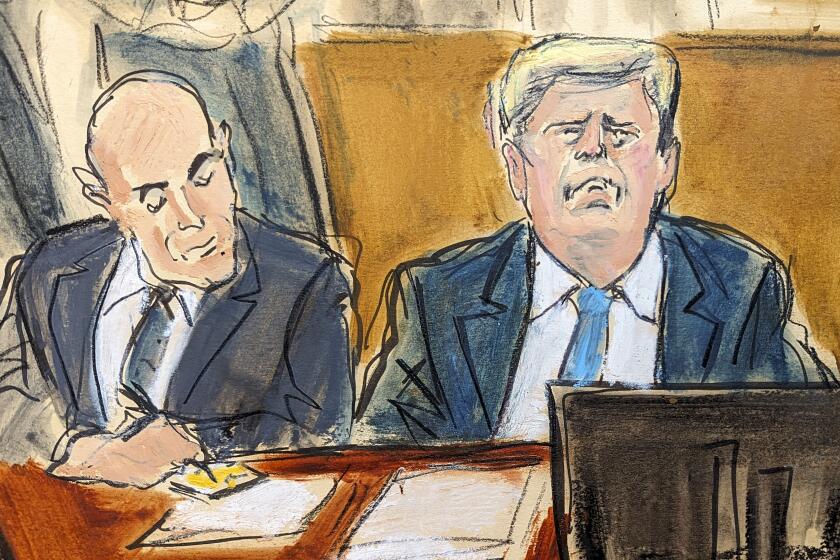On Revolution Day, Yeltsin Carries Out One of His Own
Thousands of Russians thronged through the streets of Moscow to commemorate the Bolshevik Revolution of 1917 with traditional red flags and angry speeches, but President Boris N. Yeltsin, recovering from heart surgery, announced that Thursday’s march will be the last hurrah for the Communist celebration.
From his hospital bed, Yeltsin issued a decree announcing that Nov. 7--popularly known as Revolution Day and, until the Soviet collapse in 1991, the most important holiday on the Kremlin calendar--will be renamed the Day of Accord and Reconciliation.
It will still be a public holiday. But instead of glorifying the dictatorship of the proletariat and the rise to power of Soviet state founder V. I. Lenin, Yeltsin’s spokesman said, the new holiday will commemorate the victims of revolution, civil war and repression.
“The president is closing the era of discord and public cataclysm that ravaged the country for long years between 1905 and 1993,” Sergei V. Yastrzhembsky told a briefing. In 1993, two years after moving into the Kremlin, Yeltsin crushed an abortive hard-line revolt against his rule.
“The idea of accord and reconciliation is central to the president’s second term,” Yastrzhembsky said.
The decree was Yeltsin’s first policy initiative after taking back presidential authority from Prime Minister Viktor S. Chernomyrdin on Wednesday. Chernomyrdin stood in as president for 23 hours while Yeltsin had heart bypass surgery Tuesday.
Doctors say the president is making an unexpectedly fast recovery and is eager to be moved from the Moscow Cardiological Center to another Moscow hospital where he has office facilities. They will meet today to decide whether he is fit enough for a change of scenery.
“Everything we planned for after the operation isn’t going according to plan, it’s going faster. The president is getting better more quickly, he’s beating the timetable. He’s standing up, walking around the bed, sitting in a chair, and meeting his close associates and relatives,” Dr. Renat Akchurin, the surgeon who performed the quintuple bypass, told NTV commercial television.
Yeltsin’s decree changing the holiday was announced only after about 10,000 Communists, most of them elderly, had started their annual march in Moscow, holding red carnations, chanting slogans and waving portraits of Lenin and dictator Josef Stalin.
Nov. 7 remained a holiday even after the Soviet Union collapsed. But the government has queasily avoided dwelling on its official title--the Anniversary of the Great October Socialist Revolution.
Thursday’s marchers might not have known yet that their treasured holiday had been hijacked by the convalescing president. But the Communists, trained in the rhetoric of class war and endless struggle against ideological enemies, made clear that they were in no mood for accord or reconciliation with what they call Yeltsin’s “occupation” regime.
Communist leader Gennady A. Zyuganov, unsuccessful rival to Yeltsin in July’s presidential runoff election, poured scorn on the lightning transfer of power to Chernomyrdin: “This spectacle of a one-day president for 23 hours has made us a laughingstock in the eyes of the world community.”
Zyuganov has said that Yeltsin cheated the nation by hiding his health problems from voters until after the election and has demanded that the president quit.
Leading Communists offered no comment on the renaming of Revolution Day. But Yeltsin’s decree was praised by his political allies.
More to Read
Start your day right
Sign up for Essential California for news, features and recommendations from the L.A. Times and beyond in your inbox six days a week.
You may occasionally receive promotional content from the Los Angeles Times.






